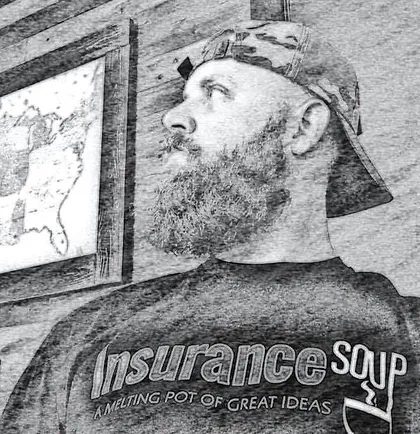We're about to dive into one of those topics we’d all prefer to ignore—but absolutely can’t afford to: how to ensure your business survives when one of you doesn’t.
Nobody enjoys contemplating their mortality, especially when you're building something great together. But here’s the harsh truth: ignoring reality won't stop it from knocking on your door when you least expect it. The question isn’t if a tragedy will affect your business someday; the real question is—will you be prepared when it does?
Let's face it—life throws curveballs, and sometimes, unfortunately, they're the kind you can't see coming. I'm talking about losing a partner unexpectedly. It’s a gut punch, emotionally and professionally, and it can turn a thriving agency upside-down overnight. But here’s the good news: with some thoughtful planning and clear communication, you can set your agency up so well that even the worst-case scenario becomes manageable.
Let’s break down the essentials—step by step—on how you and your partner(s) can best prepare each other and your business for the unimaginable:
1. Secure a Key Person Insurance Policy
First and foremost—this isn’t optional, agents, it's essential. If you don't have a key man policy, it's time to seriously reconsider that decision. This policy is designed specifically to protect your business by providing immediate financial relief if a partner passes away. The funds from a key man policy can help pay off debts, manage operational expenses, and support the hiring process if needed. It buys you time and breathing space at precisely the moment you’ll need it most.
2. Clearly Document How to Access Everything
Imagine this scenario: one partner manages the tech stack, and the other handles marketing and client relationships. If the tech wizard partner passes suddenly, could you access all your agency's critical software, files, client information, and systems?
Make sure you have a clearly documented process, including passwords, software logins, cloud storage access, and backup systems. Tools like LastPass, Dashlane, or a well-organized, encrypted digital vault can securely store this sensitive information. And don’t just write it down—regularly review and update these access protocols to ensure they stay current and secure.
3. Establish a Legal Framework with a Buy-Sell Agreement
Here’s another biggie—get yourself a buy-sell agreement. This legal document outlines exactly what happens to each partner’s ownership stake if one partner dies, becomes disabled, or even retires. It clarifies how shares of the business will be valued, who can buy them, and under what conditions. Trust me, you don’t want to negotiate this after tragedy strikes when emotions are high, and clear thinking is low. Sort it out in advance, ideally with professional legal counsel.
4. Have Regular "If I Got Hit by a Bus" Meetings
You’ve heard me say it before, and I'll say it again—communication is everything. Twice a year, sit down for a meeting dedicated solely to disaster planning. These meetings aren’t morbid; they’re smart. During these discussions, outline who handles which critical responsibilities and what immediate steps should be taken if one of you is suddenly unavailable. Make notes, record your plans, and ensure your team knows about them. Transparency here is critical.
5. Cultivate Strong Relationships with Clients Together
This might seem obvious, but you'd be surprised how many partnerships inadvertently silo themselves, each partner building exclusive relationships with certain clients. Instead, actively nurture relationships together. Introduce clients to both partners regularly, making sure clients see the agency as a unified front. This reduces the risk of clients jumping ship during uncertain transitions and provides reassurance when they most need it.
6. Cross-Train Critical Roles
If only one of you knows how to manage specific aspects of the business, you’re asking for trouble. Cross-training isn’t just about backup—it’s about creating flexibility and resilience in your agency. Ensure each partner has at least a foundational understanding of every critical role in the business—from sales and client onboarding to systems and marketing strategies.
7. Establish an Emergency Communication Plan
In a crisis, clear communication is your best friend. Outline a clear emergency communication protocol, specifying who to call first, how information will be disseminated, and how clients, employees, and key stakeholders will be informed. Be clear about the message, timing, and medium of communication. Your team and your clients need clarity quickly to prevent panic and maintain confidence in your agency.
Plan for Peace of Mind
Listen, no one enjoys tackling this stuff. But consider this preparation a gift to your partner, your family, and your employees. The best agencies aren’t just about growth—they’re built to withstand storms, no matter how unexpected or intense.
Taking these seven steps will not only help secure the legacy and continuity of your business but will also ensure your team and clients feel supported and reassured during the toughest transitions.
So, sit down, have the uncomfortable conversations, and put these structures in place. Your future selves—and your agency—will thank you for it.
.png?width=180&height=65&name=Untitled%20design%20(29).png)


.png)

